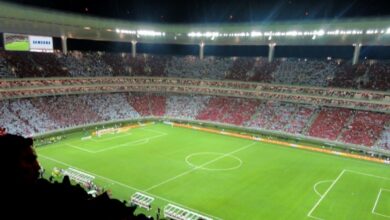Argentina: A new case of money laundering in electoral campaigns?
A new case of money laundering seems to arise in Argentina, which opens a discussion on whether corruption in political campaigns is really a crime with consequences

In Argentina, the justice began to investigate in depth the financing of the electoral campaigns of 2017, after the journalist, Juan Amorím revealed in the website El Destape that 467 people of scarce resources appeared as donors to campaigns of the movement Cambiemos, which is part of the current president Mauricio Macri. The case has already sprinkled the governor of the province of Buenos Aires. However, the real question of corruption in political campaigns is whether it really is a crime with consequences.
Leer en español: Argentina: ¿Un nuevo caso de lavado de activos en campañas electorales?
María Eugenia Vidal, governor of the province of Buenos Aires, was denounced by opposition senator Teresa García, who accused her in the recent case in which false names appear as campaign donors. Moreover, in which the money contributed is close to 64 thousand dollars, that is, close to one million 160 thousand Argentine pesos. The money was received for the campaigns of Esteban Bullrich and Graciela Ocaña, who for the elections headed the lists of candidates for Change to the Senate and Chamber of Deputies respectively.
According to La Nación of Argentina, the 467 people who appear as donors when consulted made it clear that they are not affiliated with any political movement. In that sense, according to the regulations of Argentine parties, for a person to be affiliated to a political group two copies of identity document are required, fill out a form and sign two cards, one that is for the party and the other for the member. In the investigation of the Destape, and with the exposed by the Nation, the 467 people claimed to be victims of falsification to inscribe them. In addition, according to the research, 100% of those involved received a social subsidy.
When electoral financing becomes money laundering?
Peruvian lawyer Rolando Sousa, who has been in charge of the Odebrecht case in Peru and has followed the case throughout Latin America, spoke with the newspaper El Correo in Peru about money laundering in election campaigns. Sousa said that "for the conjunction of the crime of money laundering, three requirements of the criminal type are needed, but they make it extremely difficult for the imputed crime to be proven in court."
The three points listed by Sousa are: First, to determine the origin of the funds, in the case of Argentina, the investigation has to conclude if that money comes from an illicit source. Sousa uses the Odebrecht case to remember that the money came from box 2 of the multinational, so it is difficult to determine if the money reached the multinational illegally or not; but, according to him, justice can investigate in this case the management of the company, the same can happen in any Latin American case if it is a company or consortium.
You can also read: Did the legacy of Rafael Correa in Ecuador come to an end?
The second requirement is that the taxpayer, who receives the money, lacks knowledge of the origin of the money. Regarding the recent case of Argentina, justice has to assess whether the political party and its campaign funds really do not know where the money comes from. If it is proven that they know where it comes from, we are not talking about money laundering anymore, but about complicity in the situation. In the Odebrecht case, it is necessary to highlight the recognition that the multinational already had, which could indicate that there was no illicit origin. For Sousa, this is where justice will take longer to prove the culpability of the multinational and its officials.
The last requirement to consider money laundering as a crime in election campaigns is to determine the purpose of the money, that is, if someone really wants to cover up the illegal money or if the true destination is campaign expenses. "The Latin American justice system has problems with Odebrecht, precisely because it is said that the money was directed to the campaign and not to cover any illicit, the legal gaps have allowed the money to continue entering to demonstrate its purpose," said Sousa.
In both the Odebrecht case and the recent scandal in Argentina of the 2017 elections, money laundering will go a long way in justice. Although each Latin American country has a specific structure in criminal matters, lawyer Sousa outlines three basic guidelines. It will now be the duty of each country to evaluate their respective case, but for the moment, to be able to avoid any of the requirements set forth, the Argentine campaigns can get rid of the punishment.
LatinAmerican Post | Carlos Eduardo Gómez Avella
Translated from "Argentina: ¿Un nuevo caso de lavado de activos en campañas electorales?"




